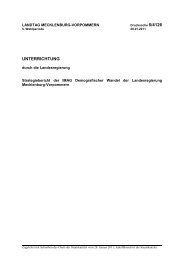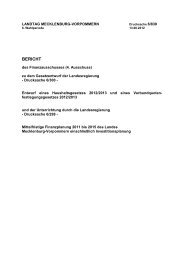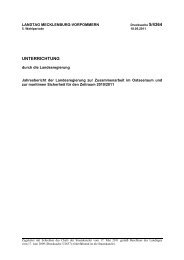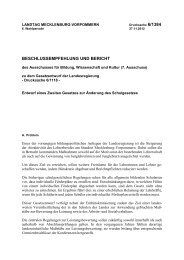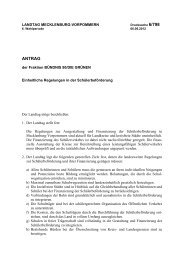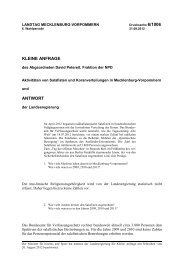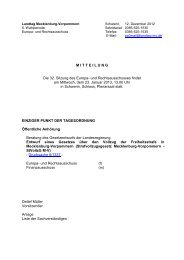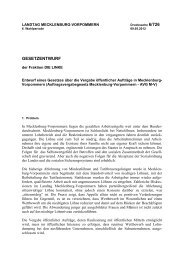Baltic Rim Economies - Baltic Port List
Baltic Rim Economies - Baltic Port List
Baltic Rim Economies - Baltic Port List
You also want an ePaper? Increase the reach of your titles
YUMPU automatically turns print PDFs into web optimized ePapers that Google loves.
Expert article 876 <strong>Baltic</strong> <strong>Rim</strong> <strong>Economies</strong>, 21.12.2011 Quarterly Review 5�2011<br />
Innovative entrepreneurships in Russia<br />
By Ivan Bortnik<br />
How innovative is Russia? What problems should it overcome to<br />
become more innovative?<br />
There are several myths about Russia, how true they are?<br />
Myth 1 – Russia has enormous scientific knowledge and<br />
therefore a great potential for innovation. It is true up to some<br />
degree. Soviet scientific knowledge was really great. However<br />
even then it was not equivalent to great achievements in<br />
innovation. It was a base for some fantastic results in space<br />
exploration, good results in defense industry. However when it was<br />
up to civil products the volume of their export - the criteria for<br />
innovative products - was really modest. However such a modest<br />
export in most of the cases was not because of low technical<br />
parameters but because of inherent inability of soviet system and<br />
mentality of soviet people to design, to produce, to promote, to sell<br />
and to organize service for product on purely competitive base.<br />
And russian scientific potential was not supported during almost 15<br />
years. It does not disappear but became much older and therefore<br />
is now much less interesting for innovative products and services.<br />
Myth 2 - russians are genetically are not innovative people. It is<br />
true but also only up to certain degree. Russians do not pay too<br />
much attention to details of everyday's life. If our surrounding is not<br />
quite comfortable we may live with it. We like to work<br />
enthusiastically for great ideas. But it is not exiting us to work<br />
systematically (step by step and may be for years) on improving<br />
quality and making competitive ordinary product. However it has<br />
nothing to do with our genes and is conditioned mostly by Russian<br />
history and climat when we have too many examples that a really<br />
hard and systematic work is not always a prerequisite for success<br />
story. And when competitiveness in our society is growing we see<br />
noout hat more and more examples ( like Yandex and Kaspersky<br />
Laborwtory) appears of competitative products on international<br />
markets. May be it is a little bit strange to hear for western<br />
specialists but here in Russia is one of the urgent needs is to<br />
promote success stories for customer oriented products,<br />
companies and even more important - persons.<br />
Myth 3 - Russia will not become innovative country until it has<br />
plenty of gas and oil resources. Yes it is true when it comes to<br />
Government's motivation to change rather rapidly from<br />
paternalistic soviet economy to much more market oriented one.<br />
However we may see from some recent examples that pure<br />
market economy is not a perfect one. But also Russia's<br />
participation in WTO will foster transition to market oriented<br />
economy. It is necessary not because of exhaustion of resources<br />
but because of that potential fact that energy efficiency and new<br />
sources of energy policies in many countries could give some<br />
good results and demand for oil and gas could go down.<br />
What is a real situation with innovative companies in Russia<br />
and how it relates to these myths?<br />
It is better to consider separately two groups of companies -<br />
large companies and small and medium enterprises. The reason<br />
for separate analyze is clear if we recall how these two groups of<br />
companies appear in Russia. Most of large companies and their<br />
management are from soviet period and are used to planned<br />
system of economy. And many of them are controlled by<br />
Government until now. Small enterprises on the contrary are<br />
organized by enthusiastic and risky persons and they never<br />
worked within soviet system as they were not allowed to exist<br />
under it. Middle sized enterprises have two origins - either they<br />
grew up from small or they are active pieces of previously large<br />
soviet companies after their collapse and breakdown. In both<br />
cases they are enterprises of new type like the small ones which<br />
rely upon only themselves and market forces.<br />
If we analyze situation with large companies we see that most<br />
of them (nice exceptions are companies from space and ITC<br />
sectors) are not completely uninnovative, but their innovations are<br />
mostly organizational and marketing ones and average level of<br />
innovativeness measured according Oslo Manual is somewhere<br />
about 6% if we take a part of sales of their innovative products as<br />
29<br />
percentage of their full turnover. As it was said before most of them<br />
are controlled by Government and now Government obliged them<br />
to develop plans for their future development based on innovative<br />
products and technologies. Another purpose of Government<br />
activity along this directions is to stimulate R&D financing by<br />
enterprises as until now it is less than 0.3 GDP. It is also important<br />
because during last few years Government poured a good<br />
investments into universities to improve conditions within them for<br />
R&D and poor demand for R&D from enterprises makes these<br />
investments not quite effective.<br />
With small and middle enterprises situation is different. If we<br />
measure their innovative sales (products and services) as a part of<br />
their turnover it is somewhere about 25-30% and most of their<br />
innovations are technological. It does not mean that most of their<br />
products are exported but the first task for most of them is to<br />
replace their western analogues on Russian market. And also one<br />
should keep in mind that to come on international market and to be<br />
competitive over there it is not an easy task for small company.<br />
However some of them (like "Tranzas", NT-MDT, "Diakont",<br />
"Vladmiva") are already well presented on international markets.<br />
Main fields of activity of small and medium enterprises where they<br />
are competitive are ICT, especially software, devices and<br />
instruments for medicine, science, ecology, energy saving, new<br />
materials for electronics, construction industry.<br />
Main obstacles for innovative SME to grow are limited size of<br />
internal market with very high level of competition by foreign<br />
companies and many problems to overcome to be well presented<br />
on international markets - competitors, language, custom, small<br />
financial resources and expensive credit, etc.<br />
Keeping in mind what was said about nature of innovative<br />
SME the Government is trying now to assist their creation and<br />
development. A special federal law was issued to facilitate the<br />
creation of innovative small enterprises by research organizations<br />
and universities. Preseed and seed funds and programs on federal<br />
and regional level are established both of public and public-private<br />
nature. R&D of SME is supported through program similar to SBIR<br />
program. Public venture funds exist with capital about two billions<br />
of US$. Infrastructure like business incubators, technoparcs,<br />
innovative technological and engineering centers are supported by<br />
State through regions of Russia.<br />
And finally, what about myths?<br />
Myth 1 – it will take not less than 10-15 years of consistent<br />
policy by Government to restore Russian scientific knowledge and<br />
innovation potential up to position of soviet science. Scientific and<br />
educational schools are still here.<br />
Myths 2 – genes of Russians are also entrepreneurial ones.<br />
When their oppression ceases they awake. Process is going on. A<br />
wise policy may speed it up.<br />
Myths 3 – it is only up to Russians to prove that this myth is a<br />
wrong one.<br />
Ivan Bortnik<br />
Professor<br />
Chairman<br />
FASIE<br />
Russia<br />
� Pan-European Institute � To receive a free copy please register at www.tse.fi/pei �




